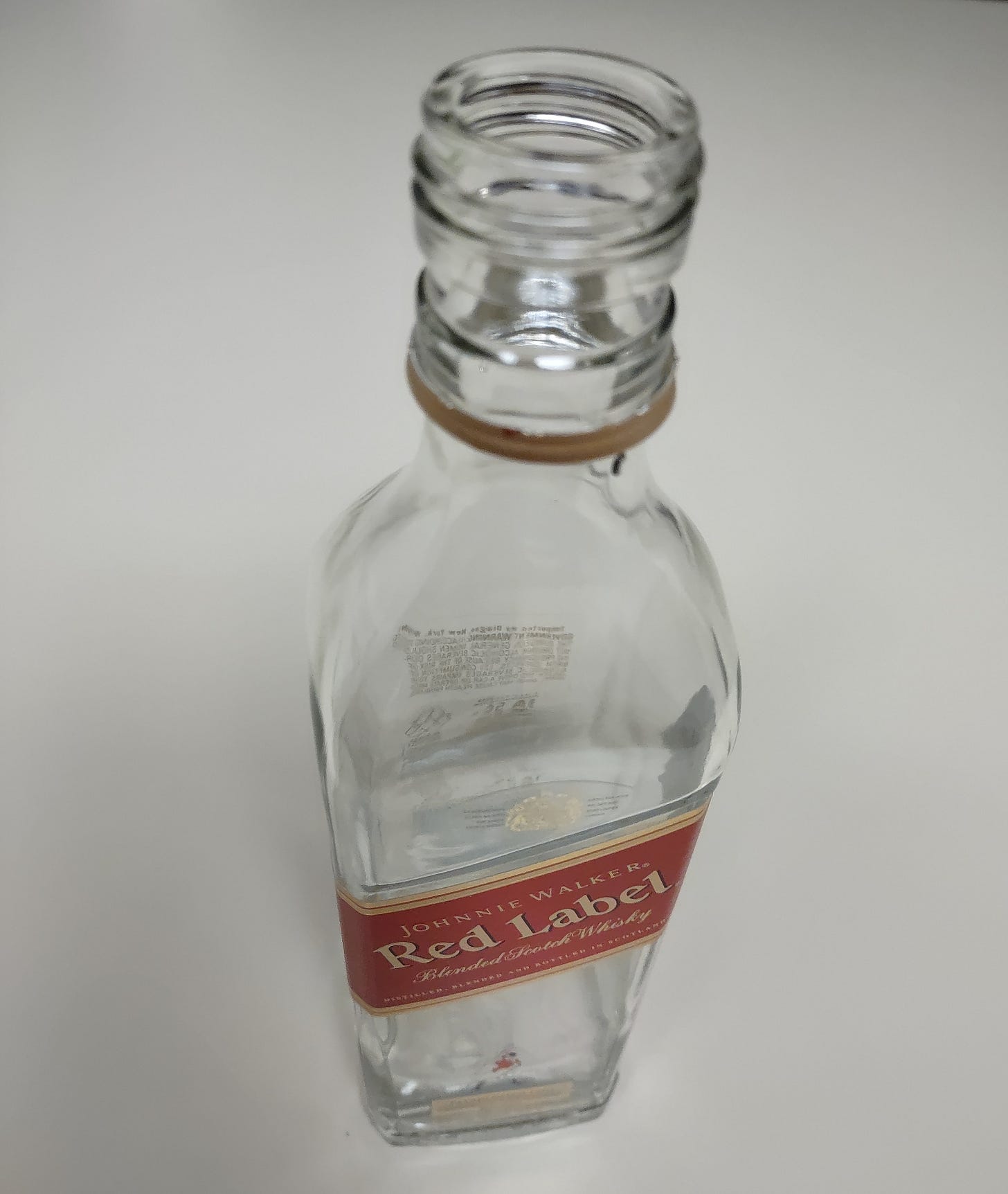I’m done with alcohol, but not out of necessity. I’ve never been a heavy or even daily drinker. In my experience, though, even low or moderate levels did more harm than good.
No moral judgment here. I’m not telling anyone else what to do, just sharing my own experience for anyone who might find it helpful. As with many things, there’s a risk-to-reward ratio that adults can calculate for themselves. (However, for purely practical reasons, you should avoid binge drinking altogether.)
I do indeed enjoy low or moderate amounts of alcohol, particularly scotch and red wine. Scotch is especially great—not just for the alcohol, but for the whole sensory experience of taste, smell, and texture.
After a long, productive day of writing, editing, and/or proofreading—and the focus that those all require—a serving or two of scotch, consumed slowly, offered a pleasant way to decompress and relax.
I’ve also experimented with drinking while writing fiction. (I never bothered trying to mix editing or proofreading with drinking, because that’s obviously foolhardy. And I never drank while writing news articles back in my newspaper days.)
I found that a glass or two of wine would stimulate a brief increase in productivity, soon followed by a complete and utter collapse of all productivity for the remainder of the evening, for a net loss. Wine, as great as it is, just makes me tired and lazy.
Scotch yielded better results. I couldn’t tell you why, but scotch doesn’t sedate me as much as wine does. I drank it neat for a while, then tried watering it down so it lasted longer. Either way, one to two servings lowered my inhibitions enough to give me a boost while working on first drafts. The alcohol cut through my perfectionism anxiety and helped me get words on the page that I could clean up later. It also aided brainstorming during pre-writing work.
But all magic comes with a price.
The next day, I might have nothing as I recovered from the previous night. And again, this was only one to two servings, consumed slowly.
Whether I was drinking while writing or while relaxing, it often reduced the quality of my sleep and then degraded the quality of the next day’s work. And as sleep quality declines, fatigue, absent-mindedness, and irritability all increase.
Something else that increased: my perfectionism anxiety when I would write without drinking. That struck me as ominous. It didn’t leave me craving a drink every night, and it didn’t prevent me from writing sober, but I want to ensure I never reach those points.
Clearly, a number of famous writers were fond of drinking—Hemingway, Faulkner, Fitzgerald, and so on. But did they succeed because of the alcohol or despite it?
Stephen King’s experience suggests the latter. As he describes in On Writing, he was addicted to alcohol and other drugs in the ’80s, and he eventually succeeded in quitting. In recent years, entirely sober, King has maintained phenomenal productivity.
“The idea that creative endeavor and mind-altering substances are entwined is one of the great pop-intellectual myths of our time,” King writes.
In my case, any benefits that alcohol brings to writing can be achieved manually. So I’m done. I enjoy it, but I’ve hit the point where I find more enjoyment in not drinking.
(Caffeine, however, I am firmly committed to.)
For a thorough explanation of the physiological and neurological effects of alcohol, I recommend that you listen to Andrew Huberman’s podcast on the subject. If you’re thinking about cutting back or quitting, this science-based podcast may prove interesting.
Again, I’m not judging anyone else. Individual experiences may vary, but we can’t all be Winston Churchill. And I’m definitely not.
Shameless Post
Speaking of my own writing, I posted the beginning of my novel The Flying Woman here on Substack:
If you haven’t yet read the book, you can now preview the first two and a half chapters at the link above.
And if you have already read the book and/or its sequel, thank you!







I agree with all of this. A glass of wine or a beer used to be a reliable way for me to limber up before writing. I stopped drinking nearly 4 years ago and it's impacted my writing in many ways, but the first that struck me was how much more writing I could get done. When I stopped, I had a ton of new time on my hands and I've frequently been able to fill that with work or thinking about work.